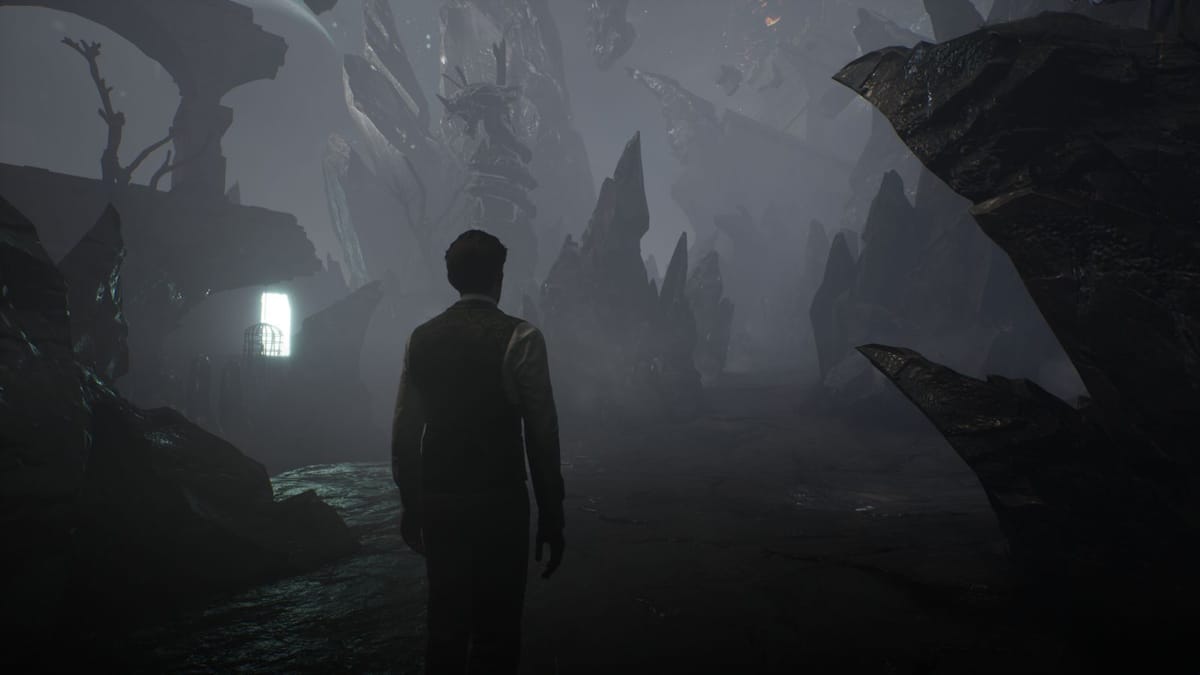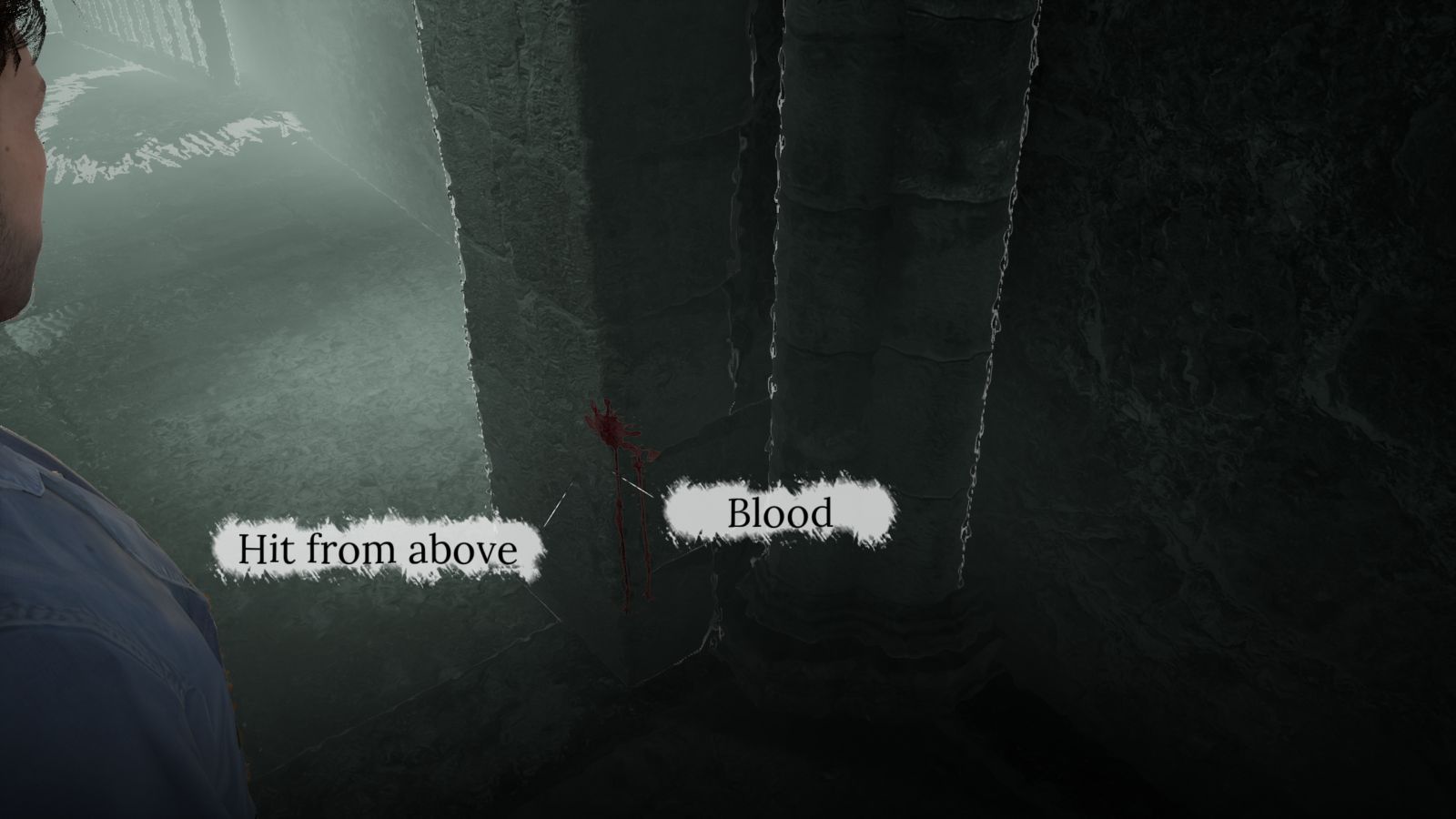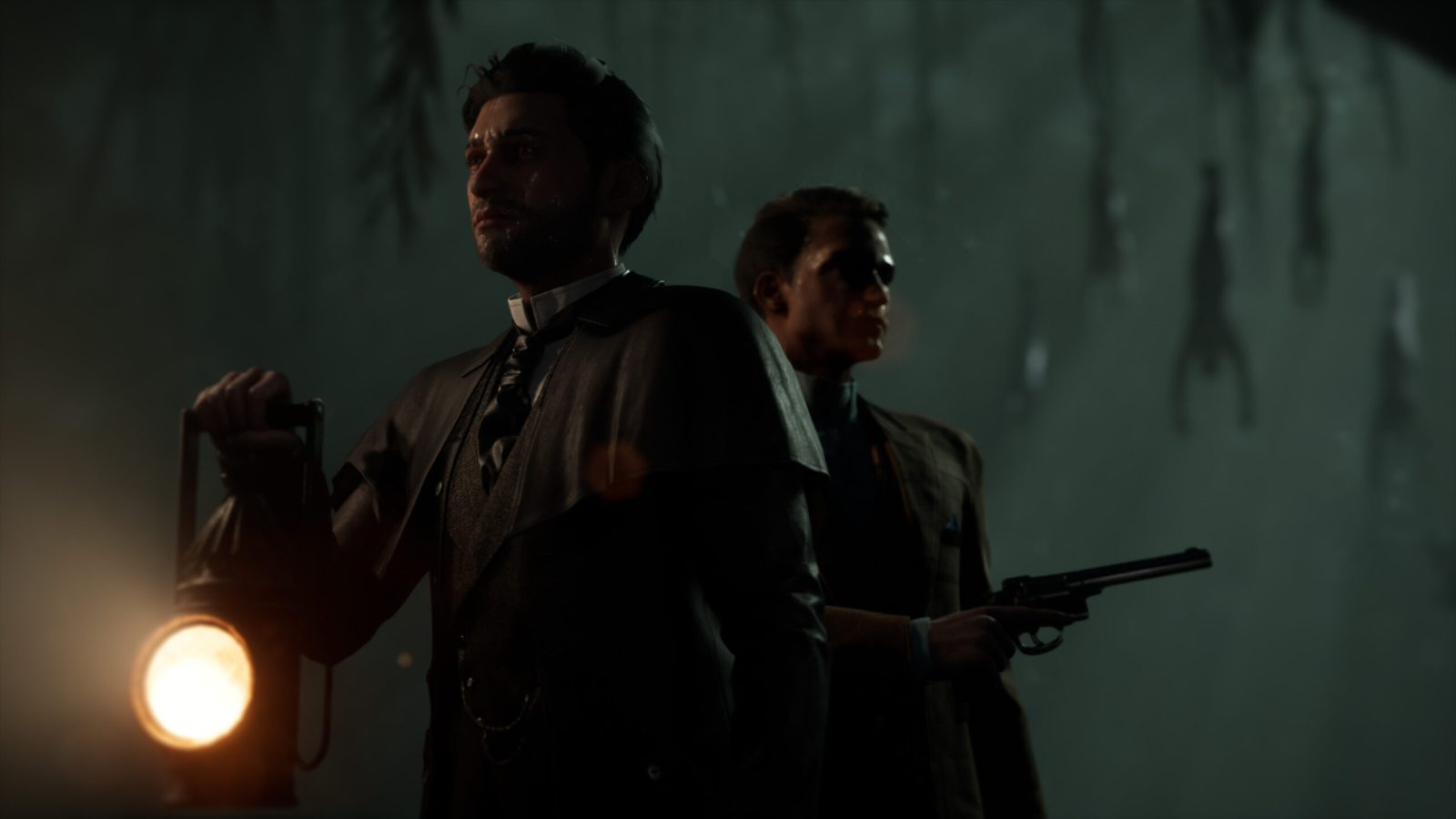
I don’t know about you, but I’m ridiculously excited to play the new/old Sherlock Holmes game. What I mean by that is that The Awakened is technically a remake, but reworked to be a part of the current storyline for Sherlock Holmes after Chapter One. We had the amazing opportunity to discuss The Awakened, and in particular the sound design, with the very one who is designing it. It was a pleasure to speak with Viacheslav Pakalin, Sound Designer, and hear about The Awakened, challenges in doing remakes, personal accolades, along with the troubles that come with developing a game in a warzone. Check out the video below, as well as our transcription of his accounts.
David Burdette: Hello everyone, and thank you for joining us. I’m David Burdette, lead editor with GamingTrend.com, and I’m joined with Viacheslav. We are going to talk about a game he’s working on, Sherlock Holmes The Awakened. It’s coming back, from, I believe, 2006, 2008, something around there. How are you doing today?
Viacheslav Pakalin: Ah well, I’m fine. Today was much less air raid sirens than usual. But one just ended a few minutes before we started our interview, so today is… well, I can say a calm day.
David Burdette: Well, calm is definitely a good thing, especially considering, I know our first question on the board is, you know, we can’t fathom the struggles there is to have to deal with the fact that you’re developing the video game in the middle of an actual war. And obviously our condolences to that being even something you have to have a challenge with. Would you like to speak on what those challenges are right now?
Viacheslav Pakalin: Imagine that when we started to develop the game, it was March of 2022. There was still feeling of uncertainty about what would happen tomorrow or even in a few hours. Constant reports that some city was also attacked, something was bombed, but we’ve decided that we need something to do. I cannot speak about everyone on the team, but what I experienced, when there was something to do, you know, like making a game, or something like that. You know, doing some job, something repetitive, something which takes all your focus. For me to, you know, experience all these terrors which happened around, it became a bit easier because you have a thing which you can use as a switch off mechanism. You know, just put down your phone when you’re reading constant doom-scroll news or something like that. It really helped me, but of course there was some tribulations on the team. Some people joined military forces, some were nonstop volunteering, helping the civilians, helping the army forces and something like that. Some who lived in the dangerous zones, they had to leave and flee, either to other towns of the Ukraine, which were more safe, or even to Europe. So it was like, you know, giant circles. Well, it was extreme experience. I’m glad that I’ve seen it, but I hope that no one ever would experience something like that ever. Because while it teaches you, you know, how to concentrate, how to focus on something that you have to do, it also can break a person. I can’t imagine how some people continue to work because they’ve lost someone. We, almost all of the team, either lost someone or experienced some tragedy connected with this invasion. So it’s emotionally very heavy.
David Burdette: Understandable, like you said, it’s something that yes, you can learn from, but it’s something no one should really ever have to learn from in this modern age.
Viacheslav Pakalin: It can definitely, you know, make a person stronger, but at what cost? This is probably the main problem. Which we will probably try to solve it after the war and for years and years.
David Burdette: Yes, yes. Now, pivoting back to the Sherlock Holmes game, I love the evolution of the Sherlock Holmes games. I’ve played a lot of the older ones, but especially the most recent outing with Chapter One. That was the first time I’d ever reviewed a Sherlock Holmes game, and I really enjoyed my time with it. How do you take steps forward in game design while still developing a remake? Because that’s kind of a challenge.
Viacheslav Pakalin: Well, yeah, there was a trick that we connected this remake to the story of Chapter One. So basically it’s a continuation of the story which happened in the previous game, but connected with the story of the original. So some things need to be reworked, some things that [did] not worked properly in the previous entry of the series, we have to update them [or] maybe cut something. Also should note that the main transition was that while Sherlock Holmes Chapter One was the open world game, the new one is more streamlined, it’s more linear in terms of how levels are built in the game. It’s not as big as it was previous probably. If I can say, it would took probably sixteen hours instead of how much bigger was the previous game of ours. We have to adapt some tools how to work because everything which was built for the open world game, OK, now it has to change to something more, you know, more linear or something like that. So it was a big challenge. Yeah, I hope that we solved it.
David Burdette: How do you feel that your work has differentiated in Awakened compared to Chapter One?
Viacheslav Pakalin: Hmm, I’m very glad when games [are] smaller [because] I had to produce less music. Because I remember the time on Chapter One when I’m like, “Jesus ohh another case. Ohh, here we go. OK, OK. Few more tracks. Here we go. Drop it.” So it became a bit easier, plus, open world games, sometimes they cannot allow you to, you know, to [utilize] micromanagement. Some small pieces here and there because of the resources can damage performance. Something like that. And with this game I had more, you know, more space to do some weird audio stuff.
David Burdette: OK.
Viacheslav Pakalin: And some, even some experiments.
David Burdette: Awesome, well, looking forward to hearing those. As you’re a sound designer, how tough is it to listen to sounds that were made almost, you know, 15 years ago and you have to figure out how to make it fresh, but you don’t want to take away from the original and you want to preserve some of it. How do you deal with that?
Viacheslav Pakalin: How can I, you know, it’s hard for me to explain how this process happened because I’ve used a lot from the previous game and adapted it, mixed it with some old sounds, some melodies that were a huge part of the previous game. I was like, “OK, let’s play with it, but make it different. Make it, you know, something new or something which would be connected to the previous games.” So while some changes in the sound or in the music would be known, it would be familiar for the person who played it [The Awakened 2006], (Jesus, how many years ago that was), and the person who played, for example, only Chapter One, “OK, that’s a sequel/remake. OK, I feel that I’m in the same place.” Characters are the same, music sounds similar or something like that.
David Burdette: Yeah, that’s a really cool idea. I honestly hadn’t even thought about that, the fact of somebody may have just played Chapter One and jumping into this. You want them to feel that feeling of familiarity as well, not just the people from 15 years ago. One of my favorite things in a video game is the right atmosphere, and you can’t do that right unless the sound design, the music, everything, unless that immerses the player. How do you usually start projects and what’s your process to get to there?
Viacheslav Pakalin: Well, at first when I see first concept art or something like that or you know a prototype, white box version of the level with sharp likings and all and plus story description. OK, this level it rolls like that, this story beat, it rolls like that. After that I’m starting to create a very simple demo. Just, you know, to fix on, “OK, probably this dark warehouse should have something like that. Like, OK, here we have some dark tone coming around us maybe. OK. Well, probably weather would be bad because we’re making a dark game. OK, let’s add some winds.” You’re starting to [and when you] return and return after each pass of the different members of the team and you return to the audio, you upgrade what you already have done. So it’s more like layer after layer. And in terms of music, for me it was pretty easy because I’ve decided to do probably a cheap thing because I’ve said, “OK, we have some music which worked in Chapter One, let’s take some inspiration from it.” And also we have Lovecraftian myths which heavily impacts the overall game story. OK, let’s take some inspiration from The Sinking City, because it was also a Lovecraftian game and try to collide it. Of course do not make it as much dark and as much industrial-ish as it was in The Sinking City. But, you know, to find something mixed with it, so you should play the game and hear and decide how it ends up.
David Burdette: Awesome, The Sinking City is one of those in my backlog on my list to to play because I’ve heard nothing but good things about it.
Viacheslav Pakalin: You should definitely try it.
David Burdette: In your career there’s probably been a lot of different moments in sound design that you’ve had to deal with. Are there any in particular that you’re proud of, or that you think were unique experiences that you’d like to share?
Viacheslav Pakalin: I’ve probably considered that I’ve managed to finish the music for Chapter One [on my own]. Because when I proposed like, “OK, I’m doing the sound design, but I can also do music”, because I was working also on music for The Sinking City, but there was also another person who helped me with that. But now I’m like, “OK, I have full power, full control. I had to develop everything.” And it was very tough but when I finished it, I’m like, “Well, I can do big things. It’s great.” So it’s more like there’s probably nothing unique in it, but it’s more like, you know, a personal milestone or something like that. OK, I can do this now. Like you know, a feeling of overcoming a challenge or something like that.
David Burdette: Like beating a boss in Elden Ring.
Viacheslav Pakalin: Yeah, yeah, yeah, yeah. Malenia solo show.
David Burdette: Exactly. Well, I could tell you you definitely accomplished a lot in Chapter One. The music design was wonderful. Now this is our final question. This one’s a little more personal for me because I did our preview for The Awakened and Heidi the doll scared the ever living crap out of me. I have to ask if you were behind any of the sound design, the design behind her specifically because it freaked me out, and I’m assuming that was what its job was to do.
Viacheslav Pakalin: Yeah, we worked with our cinematic team and we just said, “OK, let’s well, it’s a creepy doll and it talks. Let’s make it silly and creepy simultaneously.” And we decided, “OK, let’s add some wooden creaks and some effects on the voice so suddenly it tries to scare the **** out of you and something like that with the punch or something like that. And it was an exciting process to add all the small features in the voice lines and also due to voice lines [that] were great. So it was very funny to work with it. And I’m glad that, how we imagined this dialogue would/should have worked, that you experienced something like we imagined it.
David Burdette: Well, good. Yeah, I went back and watched the original scene and I’m like, “This is nowhere near as frightening.” That’s what this is here. So it is definitely doing its job and I imagine there are gonna be plenty of other moments as we play through Awakened that will pop up and freak us out a little bit I would imagine.
Viacheslav Pakalin: It’s not far from the release, so you probably soon will experience it all.
David Burdette: Well, we definitely wanna thank you for your time. Thank you for spending a little bit of it with us. I am very excited to play Sherlock Holmes The Awakened, which, for anyone listening, is releasing on April 11th and it will be available on PlayStation, Xbox and PC platforms. As well as, is it coming to Nintendo Switch?
Viacheslav Pakalin: Yes, also.
David Burdette: Awesome, it is coming to Nintendo Switch, so go ahead, go out there, pre-order it. Get yourself ready to jump right back in and enjoy your time with Sherlock Holmes. Once again, thank you again Viacheslav for spending some time with us.
Viacheslav Pakalin: Thank you. Have a nice day.
Stay tuned to Gaming Trend for more Sherlock Holmes The Awakened news and info!



